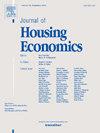损失厌恶对房屋市场卖方行为的影响
IF 2.4
3区 经济学
Q3 ECONOMICS
引用次数: 0
摘要
本研究采用保留规则和报价数量规则两种方法,探讨损失厌恶如何影响房屋市场中的卖方行为。结果表明,在保留规则下的无限时间模型中,损失厌恶可以增加保留值,并且只有与风险中性卖家的参考依赖才会产生处置效应,这与先前的研究结果一致。相比之下,在具有特定截止日期的有限时间模型中,在最后阶段被迫亏本出售的前景激励卖方选择更早出售,导致保留价值上下动态波动。这一发现为现有文献增加了一个新的维度。此外,利用出价数规则,我们发现损失厌恶会导致卖家等待更多的出价,支持市场上价格与时间之间的负相关。本文章由计算机程序翻译,如有差异,请以英文原文为准。
The impact of loss aversion on seller behavior in the housing market
This study explores how loss aversion influences seller behavior in the housing market, employing both the reservation rule and the number-of-offers rule approaches. We show that loss aversion can increase the reservation value in an infinite-time model under the reservation rule, and a disposition effect can arise solely from reference dependence with risk-neutral sellers, consistent with prior research. In contrast, in a finite-time model with specific deadlines, the prospect of forced sales at a loss in the final period incentivizes sellers to opt for earlier sales, leading to dynamic fluctuations in the reservation value, both upwards and downwards. This finding adds a novel dimension to the existing literature. Furthermore, employing the number-of-offers rule, we find that loss aversion can lead sellers to await more offers, supporting the negative correlation between prices and time on the market.
求助全文
通过发布文献求助,成功后即可免费获取论文全文。
去求助
来源期刊

Journal of Housing Economics
Multiple-
CiteScore
3.30
自引率
4.20%
发文量
35
期刊介绍:
The Journal of Housing Economics provides a focal point for the publication of economic research related to housing and encourages papers that bring to bear careful analytical technique on important housing-related questions. The journal covers the broad spectrum of topics and approaches that constitute housing economics, including analysis of important public policy issues.
 求助内容:
求助内容: 应助结果提醒方式:
应助结果提醒方式:


